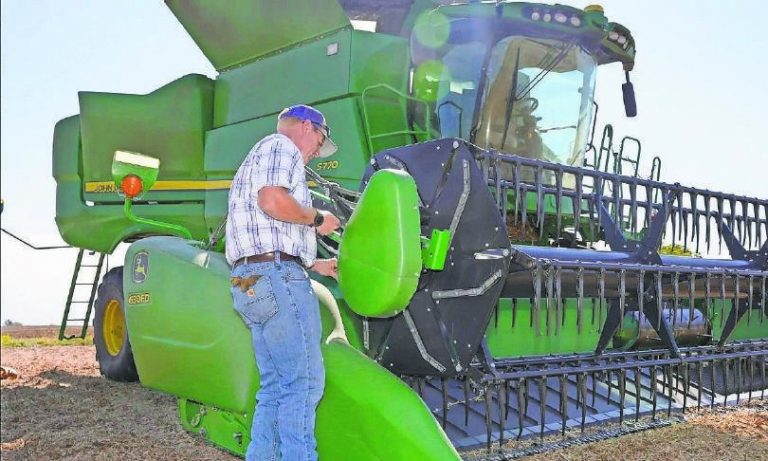The Life of an Undercover Officer
EDITOR’S NOTE: Due to the sensitive and dangerous nature of the work, the identity of the current undercover officer featured in this article has been changed.
LINCOLN COUNTY – Concealing one’s true identify, being inconspicuous, and infiltrating and exposing criminal networks may sound mysterious and exciting. But for law enforcement officers who go undercover it’s hard work that requires sharpness, intense focus, quick wit, adaptability, problem-solving ability, and communication and people skills.
One of those undercover officers, Dana, agreed to a sit-down interview with the Lincoln County Journal. Calling the work “a thrill of a lifetime,” part of the draw to the job is the adrenaline rush and the chase but more importantly, getting illegal drugs off the street.
“I am good at reading people,” Dana said. “It’s a huge part of narcotic work and even more so being undercover. You got to be able to read the situation and the person very well.”
Typically, the undercover narcotics assignments are relatively short in length but the actual investigations can go for months. The longest undercover work for Dana has thus far involved repeated drug buys from the same dealer or buyer ranging from meth to cocaine to fentanyl.
When undercover, Dana relies heavily on training in being able to discern people and respond accordingly.
“I know who’s around me,” Dana said. “I fall back on reading body language. I know when things are going to be okay and when they’re not okay. We train very hard for that and train as a group in rescue situations. A street level or mid-level dope dealer will sell to anyone quite literally and quite frankly. They just don’t care. So there’s not a whole lot of concern and fear in putting that together.”
Dana said it’s imperative not to let fear of discovery dictate actions.
“You can’t let that in your mind because if you do, then you’re going to start to telegraph problems for yourself, which is not a good thing. You have to be able to fall in a role be it a mechanic or whatever role you have in mind.”
Lincoln County Clerk Kenneth Schulte knows well that mindset as he once walked the save path as Dana, serving as an undercover officer from 1999-2006. He worked undercover in narcotics for the Missouri State Highway Patrol (MSHP). Becoming an undercover officer was a childhood dream come true for him plus he wanted to help people and families impacted by drugs.
“When I was growing up, that was number one,” Schulte said. “I wanted to get into law enforcement. I wanted to work undercover. I always thought that was the best way to take down the most amount of people and to put the bad guys in jail.”
As an undercover officer, forming a convincing cover identify is critical — one that rings true to others and does not raise any suspicion. Prior to entering law enforcement, Schulte worked construction so that was the life he took on while working undercover.
“I looked the part. I had long hair and a goatee,” he said. “People who knew me my whole life didn’t recognize me sometimes. I was either a laid-off construction worker or I worked construction out of town. You always use the name that you are familiar with in case somebody called you by name. A trooper would then fill in the background.”
Schulte said part of the undercover work involved coaching those close to him.
“I told my friends and family if you see me out at a bar or somewhere you don’t normally see me, please don’t approach me,” he said. “There were times because of my appearance, people would approach me and they would go, ‘Hey, do you know where I can get A, B, and C? And I’m like, ‘Not today, but here’s my number. I can probably meet up with you later this week.’”
Undercover officers regularly use informants who have established relationships with drug traffickers or drug buyers. The informant will vouch for the undercover officer, further heightening believability and reinforcing trust.
Schulte was introduced to the undercover world by an informant which helped in cultivating credibility and building trust. He says one of the best informants he had was drug-free but his longtime girlfriend was a drug user. Witnessing her down fall and eventually breaking up, the boyfriend became Schulte’s informant in part to his strong dislike of drugs.
“He just came forward and said, ‘I know all these people. They all trust me.’ He introduced me to probably 25 different people that we bought drugs from and they didn’t know he didn’t do it,” Schulte said. “Back then meth was really big because meth labs started exploding around 1994. Marijuana was still illegal and we bought that. I bought a little bit of heroin, a little bit of cocaine, and some crack.
“There was no drug I probably didn’t buy. Then of course, prescription drugs and back then oxycontin was being prescribed by a lot of physicians. People were using half of their dosage and selling the other half of their dosage to make money because it was a good profit.”
For the most part, Schulte says he was never really in danger but undercover, it is necessary to always be aware.
“Anytime that you’re working narcotics, people are going to have guns,” he said.
When first undercover, Schulte would put a wire in his pocket but over time, he would have specially-built clothes that had a wire well hidden. Also, there were code words or code names when danger was a real possibility.
One time in particular, potential danger was lurking a little too close for comfort.
“A guy came up to me and gave me the brother hug,” he said. “He slid his hand across my back and around. I was a little heightened then. You’re always nervous. There was never a time where a gun got stuck in my face but there were definitely times where I’m like, ‘this is not a good situation.’”
Still working undercover, Dana finds the job exhilarating and gratifying and never a dull moment.
“There’s a lot of reward in doing it,” Dana said. “There’s a lot of reward especially towards the end of an investigation when you see it go full circle and now that individual is in custody and that particular person can no longer do what they’re out there doing. That’s rewarding.”
After nearly seven years in narcotics and as an undercover officer, Schulte said it was time to do something different so he moved to criminal investigations.
Both agree that being an undercover officer takes a certain type of person.
At the core, the right personality for undercover work involves strong communication and observations skills, high moral standards, fortitude, and grace under fire.
Dana adds that a person never fully knows the experience of working undercover until reality of undercover happens. Still, Dana advises carefully thinking through becoming an undercover officer and weighing the time commitment against family responsibilities and personal needs is best practice.
“You’re in the moment with a person who potentially would do harm to you if they even had a sliver of an idea of what you actually were,” Dana noted. “You have to have the ability to read a person and to be able to be comfortable in a situation where you can block out concern and just be a person buying narcotics. You just have to be that way.”

